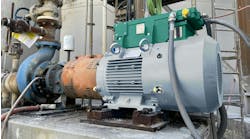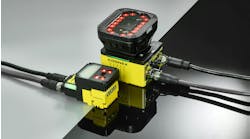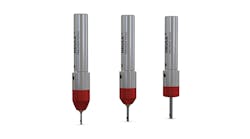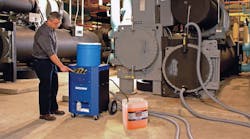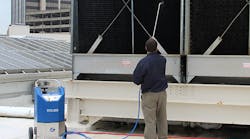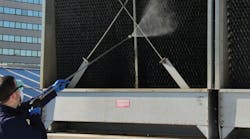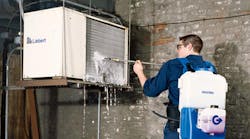Latest from Plant Operations
Don’t Let Scale Wreak Havoc on Your Equipment
When it comes to facility maintenance, one of the key goals is to maintain efficient operations. Moreover, few things can throw a wrench into those plans and cause a spike in operating costs more than scale. Here's some insight into the impact of scale and what solutions are available.
How Do I Know if I Have Scale?
Operating logs are a great tool to help monitor and track your equipment while watching for any red flags. If you see reduced flow rates, increased energy consumption, and a reduction in heat transfer—those are some clear indications that things are not functioning correctly.
There is typically a type of efficiency indicator that can be monitored on most equipment. As an example, with cooling towers, it can be a visual inspection of the fill. As the scale continues to build and becomes heavier within the fill, airflow is significantly reduced. Without proper airflow, the heat cannot be rejected from the water.
What Effect Does Scale Have on Equipment?
One of the biggest headaches that comes with the development of scale is the impact on equipment efficiency. Scale can develop on any equipment that uses water as a heating or cooling media. Scale acts as an insulation barrier on the heat transfer surface, which results in the loss of actual heat transfer and proper functionality. Moreover, reduced efficiency also means that your equipment is consuming more energy to try to get the job done.
Imagine wearing a winter jacket on a 90°F day and your body trying to get cool—this should help you understand what that insulating scale barrier is doing to your equipment.
When scale is ignored, it can cause other downstream effects such as under-deposit corrosion. By not implementing a preventative maintenance program, scale deposits can cause corrosion to your system which eats into the base of the metal resulting in tube or equipment failures. This can also shorten the overall life of your equipment.
How Can Scale Impact Operations?
Scaling can have a significant negative impact on operations in a variety of ways, more energy can be used to produce the same output and/or the quality of the products can be affected.
For example, a plastic parts manufacturer with scaling in an extruder experienced significant operational issues due to scaling. In that instance, the water passages on the extruder had tight tolerances and the cooling water flow rates were minimized because of scale accumulations. This resulted in slow cycle times and unacceptable part rejection rates due to deformities. The customer was not producing as many parts as the equipment is capable of when no scaling is present in the cooling passages.
By keeping the passages clean, the part production speed goes up and the production of bad parts requiring rejection goes down. Producing a higher amount of parts per hour increases profitability for the manufacturer.
How Can I Get Rid of Scale?
A proactive approach to the regular maintenance of machinery is essential to preventing catastrophic failures or unplanned shutdowns resulting from scale. Facility managers can approach routine maintenance with detailed daily operational logs, scheduled inspections, and thorough equipment cleanings.
Solutions such as Goodway’s Scale Removal Systems combined with our ScaleBreak liquid descaler can effectively remove scale and reestablish efficient operation.
When chemically removing scale, descaling solutions are circulated through the water passages of the equipment. The descaling chemical solution will penetrate the scale deposits and dissolve them into a liquid suspension so they can be flushed from the equipment. There is no disassembly of equipment required for chemical cleaning, most equipment descaling is performed as a CIP (clean in place). Using mechanical or chemical methods to remove scale is important to keep equipment running efficiently.
Is All Scale the Same?
While calcium carbonite is the most common type of scale, there are other elements that can develop such as iron oxide, silicas, and phosphates. At Goodway, we find it helpful to work with our customers to test the scale deposit with our solutions. We want to be certain we have the correct product for that customer’s specific deposit.
At the end of the day, preventative maintenance and proper descaling methods are well worth the investment. It helps keep your equipment running efficiently and properly, which will save you time and money. Goodway has online calculators to help building owners and facility managers see just how much they can save when they use Goodway’s ScaleBreak Liquid Descaler to remove scale and increase system efficiency. We also offer insightful procedures to insure the proper application of our products so your cleanings are a success.




